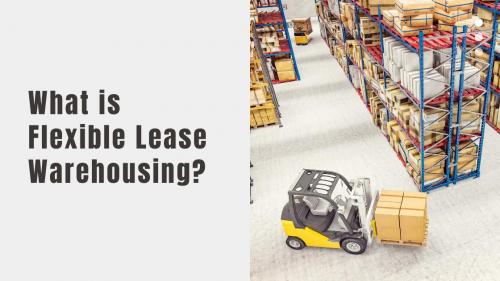Warehouse & Inventory Management: Key Differences Explained


When optimizing business processes, it's vital to recognize the differences between warehouse and inventory management. Both functions are essential for maintaining a company's efficiency and meeting customer satisfaction. Warehouse management concentrates on the holistic logistics and efficient use of physical space, whereas inventory management involves methodically tracking and regulating stocked goods.
A crucial aspect of effective inventory management involves implementing an inventory management system, a robust tool empowering businesses to monitor stock levels, reorder products, and uphold a seamless supply chain. In this article, we will delve into the nature of a warehouse management system and differentiate it from inventory management. We will illuminate their distinct functions and underscore the importance of an inventory management system in contemporary business practices.
What exactly is Warehouse Management?
Warehouse management encompasses the effective oversight and control of various facets within a warehouse's operations. This includes monitoring inventory, fulfilling orders, and optimizing storage. The primary goal is to guarantee that products are appropriately stored, accurately picked and packed, and delivered to customers within specified timelines. To illustrate, streamlined warehouse management in an online retail warehouse involves systematic product organization, facilitating swift retrieval, accurate packing, and timely shipment of customer orders.
What Functions does a Warehouse Management System (WMS) fulfill?
A Warehouse Management System (WMS) is a software solution crafted to streamline and optimize warehouse strategies. It effectively oversees inventory tracking, order processing, and shipping, ensuring precise control over stock levels and enhancing overall efficiency. WMS utilizes advanced algorithms to improve picking, packing, and shipping processes, minimizing errors and maximizing productivity. Understanding the role of WMS provides real-time data and insights, empowering businesses to make informed decisions, reduce costs, and enhance customer satisfaction. As a fundamental tool for modern warehouse operations, WMS is crucial in efficient management.
What does Inventory Management entail?
Inventory management is the systematic process of overseeing, controlling, and optimizing a company’s stocked goods. This involves tracking inventory levels, restocking products, and ensuring items are available when needed while minimizing excess or obsolete stock. Effective inventory management enables businesses to meet customer demands efficiently, reduce carrying costs, and enhance profitability.
What are the Functions of an Inventory Management System?
An Inventory Management System (IMS) is a crucial software tool for optimizing a company’s inventory-related tasks. It facilitates precise tracking of stock levels, monitors product sales, and automates reorder processes. By offering real-time insights into inventory movement and trends, an IMS enables businesses to make data-driven decisions, prevent stockouts, reduce excess inventory, and enhance overall operational efficiency.
What similarities exist between Inventory Management and Warehouse Management?
Inventory and warehouse management both center on optimizing the handling, storage, and movement of goods within a business. They share a common goal of maintaining optimal stock levels to prevent overstocking or understocking. Both functions rely on accurate tracking methods and technology integration to streamline operations, reduce costs, and meet customer demands effectively. Utilizing real-time data and advanced software solutions enables businesses to enhance overall efficiency and responsiveness in their supply chain operations.
Warehouse Management vs. Inventory Management
Warehouse management and inventory management are closely related concepts, but they involve different aspects of the supply chain. Here are the critical differences between warehouse management and inventory management:
Scope and Focus
Warehouse Management: Primarily focuses on the physical storage and movement of goods within a warehouse. It involves optimizing the warehouse layout, managing picking and packing processes, and ensuring efficient use of space and resources.
Inventory Management: Encompasses a broader scope, including the entire inventory lifecycle from procurement to production and distribution services. It involves tracking stock levels, order fulfillment, demand forecasting, and maintaining an optimal balance between supply and demand.
Functions
Warehouse Management: Involves receiving goods, organizing them within the warehouse, picking items for orders, packing, and shipping. It also includes tasks like inventory counting and managing the flow of goods in and out of the warehouse.
Inventory Management: Encompasses planning and controlling inventory levels, determining reorder points, safety stock, and economic order quantities. It also involves demand forecasting to ensure that the right amount of stock is available to meet customer demand without excess.
Technology and Automation
Warehouse Management: Often relies on technology and automation for tasks such as barcode scanning, RFID (Radio-Frequency Identification) tracking, and warehouse management systems (WMS) to streamline operations.
Inventory Management: Utilizes technology for inventory tracking, demand forecasting, and order management. Inventory management software may integrate with other systems like ERP (Enterprise Resource Planning) for a comprehensive view of the supply chain.
Time Horizon
Warehouse Management: Focuses on the immediate and short-term aspects of storing and moving goods within the warehouse.
Inventory Management: Takes a longer-term perspective, addressing inventory levels over extended periods to align with overall business strategy and market demand fluctuations.
Decision-Making
Warehouse Management: Primarily concerned with day-to-day operational decisions within the confines of the warehouse.
Inventory Management: Involves strategic decisions related to procurement, demand forecasting, and overall inventory strategy to ensure that the right products are available in the right quantities.
Advantages of Incorporating Warehouse and Inventory Management
The integration of warehouse and inventory management systems provides several benefits:
Enhanced Visibility: Seamless integration offers real-time visibility into inventory levels, order status, and warehouse operations, facilitating better decision-making.
Optimized Stock Levels: Businesses can maintain optimal stock levels, reducing excess inventory and minimizing stockouts, ultimately improving customer satisfaction.
Efficient Order Fulfillment: Integration streamlines order processing, picking, and packing, resulting in faster and more accurate order fulfillment services and an enhanced customer experience.
Cost Savings: The elimination of inefficiencies, reduction in operational warehouse costs, minimized carrying expenses, and optimized warehouse space contribute to overall cost savings.
Reduced Errors: Automation reduces manual handling, lowering the risk of errors in order processing, inventory tracking, and shipment, ensuring higher accuracy.
Improved Scalability: Integrated systems can adapt to changing business needs, allowing seamless scaling of operations without disruptions.
Data-Driven Decisions: Access to comprehensive data analytics enables businesses to analyze trends, forecast demands, and make informed decisions, enhancing overall efficiency and profitability.
Take your business to new heights by supercharging your operations with our Warehouse and Inventory Management solutions, meticulously designed to enhance efficiency and fuel growth.
Let's revolutionize your business collaboratively! Reach out to us now and embark on a journey towards seamless operations, Accurate Warehousing, and unparalleled success. Don't hesitate to transform your business today!
Name: Accurate Warehousing and Distribution
Address: 6585 Escondido Street Ste B. Las Vegas
Phone No: (702) 777-0300



Comments